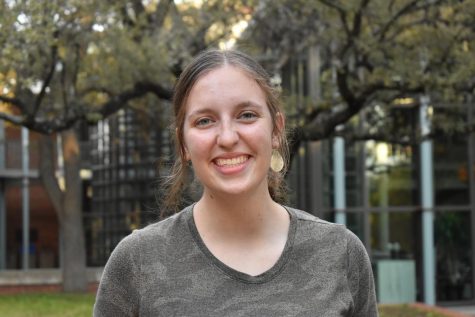Available resources for Trinity students with financial struggles
Judd Emergency Fund and more bolster students in difficult financial situations
In these times of economic uncertainty with a rising inflation rate, the percentage of college students experiencing homelessness nationwide is 14%. Furthermore, housing insecurity, in general, is on the rise across the nation. Trinity students have not been immune to this phenomenon: the Reverend Judd Student Emergency Fund, operated by University Chaplain Alex Serna-Wallender, was created decades ago to help students cover expenses in times of emergency. The Judd Fund has become increasingly relevant for Trinity students in the past year.
“[The Judd Student Emergency Fund] became an incredible avenue of support during COVID for an increasing [number of] students, but it also gave donors and friends of Trinity a conduit to support students as well,” Serna-Wallender said.
Last year, 255 donors and more than $70,000 helped students with food, medical, housing, technology, school supplies and transportation needs.
“We were able to assist 167 students, which is far, far more than we ever could have or ever did in a single year pre-COVID,” Serna-Wallender said.
If a student is in need of emergency expenses from the Judd Fund, they can be appointed via the Trinity Student Concern Reporting Form, which can be filled out by concerned staff or faculty. Alternatively, students can email [email protected] directly. Serna-Wallender said that he would have a confidential conversation about the student’s needs, gather any necessary documentation and then review the plan with Student Financial Services.
On a broader scale, Emma Phearse, Trinity’s Case Manager, facilitates weekly meetings with the Student Success Team, a group of staff members which spans from Academic Affairs to Academic Coaching, Academic Advising, Student Accessibility Services and Student Financial Services.
“Job loss, inflation and changes in family financial support are all circumstances that the Student Success Team has engaged with over the past two years. When you pair these financial stressors with the pandemic’s influence on mental health, creating access to resources becomes even more important,” Phearse wrote in an email.
Phearse outlined some other campus and community resources that are available to students experiencing housing and food insecurity as well as other long-standing issues. The Dean of Students Persistence Fund provides financial support for longer-term expenses or unique circumstances, according to Phearse. If a student is in need of this kind of financial support, they can contact the Dean of Students Office via email at [email protected].
Additionally, Phearse stressed that students who are struggling with access to food are able to request one-time or recurring funding for groceries from the Nourish Virtual Food Pantry. The Nourish Virtual Food Pantry started in spring 2021 to address food insecurity during the pandemic. Students in need of continuous support may need to meet with Phearse in order to clarify the context of the request and to process the form as requested. In this same vein, students can use the request form and donate form to ask for or give away meal swipes to students with meal plans who have run out of meal swipes.
Phearse and Serna-Wallender both emphasized that the Student Success Team and other campus partners are committed to helping students academically and financially to improve overall student well-being.
“When someone is struggling in one area — whether it is mental health, physical health, finances or social lives — the likelihood that they are struggling in academics increases. The Student Success Team recognizes these connections and focuses on intervening in ways that help reduce stress and remove barriers,” wrote Phearse.
As college students struggle nationwide to make ends meet, campus resources can provide an opportunity to assuage financial woes. In a pamphlet, an anonymous student helped by the Judd Fund wrote, “the support from the Judd Student Emergency Fund allowed me to support myself with the bills and other necessities to finish the year strong and graduate from Trinity this past May.”

Hello, y'all! I'm Abby Power, and I am a sophomore news reporter from Kyle, Texas. I intend to major in Political Science, Spanish, and Global Latinx Studies....
















